Natalie Franke is no stranger to entrepreneurship. As an undergrad, she built a successful photography business on the side, turning her passions into her career at an early age. Now, as cofounder of Rising Tide Society, she works every day to empower creatives and foster a sense of community among entrepreneurs, rather than competition. Here's Natalie with her thoughts on work-life balance and her lifelong love of entrepreneurship—starting with her first passion-turned-business: photography.
In college, I was a Visual Studies major. It was interdisciplinary in that it was focused on the psychology of seeing and visual neuroscience, in combination with art history and actually making art. It’s how we see the world and how we perceive the role of art in our daily lives or even just the media we consume. I knew that I wanted to get a degree in something that kept my options open, that allowed me to bring something unique to the table. I didn't know what I specifically wanted to do. I knew that I loved understanding the brain and how it works—and how photographs play into that.
While in school, I was actually running a small business. I was photographing on the weekends, and after graduating, I went full-time into being a photographer. I never expected [that]. I thought it was just a passion that I did to make extra money on the side, but it became a part of me in a way I didn’t expect. I was making nearly six figures in revenue as a photographer, my senior year of college. I think I realized there was an opportunity for me to go full-time and build this business, and not take a traditional career path. It was kind of a catalyst moment where the business grew, and I just had to take a leap of faith.
On Finding Work in Unexpected Places
Rising Tide Society was born as a passion project that was never supposed to create revenue. It was a community. It was never designed to be as large as it became.
I had been running my photography business full time for a few years, out of school, and I found entrepreneurship—especially solo entrepreneurship—to be very lonely. You're wearing a lot of hats, you’re carrying the weight of the entire world on your shoulders, and oftentimes, the only other people who understand what you’re going through are other people in your field. The hard part in my world was that as a photographer, the other people in my field were considered my competitors. So the ability to really have a deep relationship with someone who could help me and guide me through, almost in a mentorship capacity (which is so crucial to development, professional and personal) didn’t really exist in that landscape in the way that I needed it to.
So, Rising Tide was built to get creative entrepreneurs together in the spirit of community over competition, to support one another, and it started with coffee meetups. We had 12 cities in the summer of 2015 that were meeting every month. Through social media, it caught on like wildfire, and within three months, we had over 100 chapters or cities meeting every month with different creatives from all industry types. That lead us to almost a breaking point. We had been volunteering and running it day to day, and all of a sudden, it was taking on a life of its own and becoming a massive organization.
On Embracing an Acquisition as a Way Forward
And that’s where HoneyBook came in. We had been working with different partners and sponsors, and we discovered this software company and had this amazing synergy. From the very first moment we met, it was electric and our vision for the creative industry, our mission, was the same, just our ways of achieving it were different. We wanted to achieve unity in the creative industry and allow people to pursue their passion through community, and HoneyBook was doing it through software. We were able to see this really clear connection and basically merged. And we are now the content and community arm of this amazing software company.
I think the advice that I would give is that when you see your hard work making a tremendous impact in the world, and the only thing you can think about is your passion—if there’s a way, if you can find an avenue to monetize or to turn it into something that can support your livelihood, then go for it.
On Entrepreneurship, and Why It's Not for Everyone
Anyone can be an entrepreneur. Should everyone be an entrepreneur? No. Absolutely not.
There’s a reason why, and I talk very openly about this, 1 in every 3 entrepreneurs struggles with depression and anxiety. 1 in every 3. I know a lot of people who feel pushed to do entrepreneurial things or be in an entrepreneurial setting. That risk can be detrimental to their mental health or their physical wellbeing. Or, maybe they are in a season of their life in this moment where it is not the right fit.
I think that there are people that are naturally inclined to want to build, and they don’t mind taking massive risks. That, to them, is fulfilling and exciting and gives them a rush. I’m one of those people. But entrepreneurship is hard. It’s glamorized on social media now, it’s become this phenomenon where it’s “cool” to be an entrepreneur. It's not that simple.
On Work + Life Balance
People like to subscribe to this perfect concept of balance. The more that I age as an entrepreneur, and the more that I build things and create different projects, the more I realize that the balance isn’t always about quantity. It’s not always about having a lot of time to rest, or a lot of vacation, or a lot of anything. It’s about the quality and the intentionality.
For me, it might be that I only get 30 minutes a day that are truly mine. But those 30 minutes are spent doing exactly what my body needs to do to relax and rest, whether it’s meditation or even a warm bath at the end of the day.
[That balance] will look different for everyone. The key is to determine what it needs to look like for you in this season of your life. Whether you’re a parent, a student, a full-timer with a part-time side hustle, it’s about finding that balance in this season. And it will change and look different as you grow older. Just feel confident in the fact that that balance is yours and no one else’s.
Photos by Abby Grace, provided by Natalie Franke.
Walk us through your typical day.
5:52am: Dog jumps onto the bed and tries (unsuccessfully) to wake me up.
6:10am: Alarm goes off and my dog rejoices by running circles around the room.
6:20am: Gratitude journal—1, 2, 3!
6:30am: Coffee is ready; my husband and I watch the news from the comfort of bed while I upload a post to Instagram after rewriting the caption seven times.
7:00am: Shower and get ready for the day; I balance my phone against the mirror and watch InstaStories while doing my hair and makeup.
7:50am: Pack up backpack, throw on jacket, and walk to work.
8:02am: Meet with our filmmaker to review upcoming video content.
9am: Company-wide sync for 7 minutes; learn about the latest product feature release.
9:10am: Dive into my three inboxes; try not to panic by the sheer number of emails.
9:30am-12pm: Meetings with team and Head of Community Support.
12pm: Lunch; hope they are serving tacos.
1pm - 4pm: Meetings, vlogging, podcast interviews.
4:55pm: Find a quiet corner to get work done; put headphones on.
6:20pm: Pack up backpack, wash my empty coffee mug.
7pm: Salad for dinner.
8:28pm: Turn on latest Netflix binge.
9:24pm: One more episode...
10:30pm: Fall asleep.

Morning coffee dates or evening happy hours?
Morning coffee dates—without a doubt. I run on caffeine and creativity.
The one thing you can’t leave home without (besides your phone!)?
My iPad Pro—I love hand lettering and doodling on my iPad. It serves so many purposes. On busy days, it is a stress reliever. When I'm having trouble explaining a concept verbally, I’m able to quickly sketch it out, communicate my ideas visually, and export it directly into our slide decks. I also love lettering inspiring quotes to share on social media. I couldn’t live without my iPad.
Best way to spend a long weekend?
I love quiet, low-key weekends. Spending time with the ones you love, reading a good book, doing something that brings you joy—that is what it’s all about.
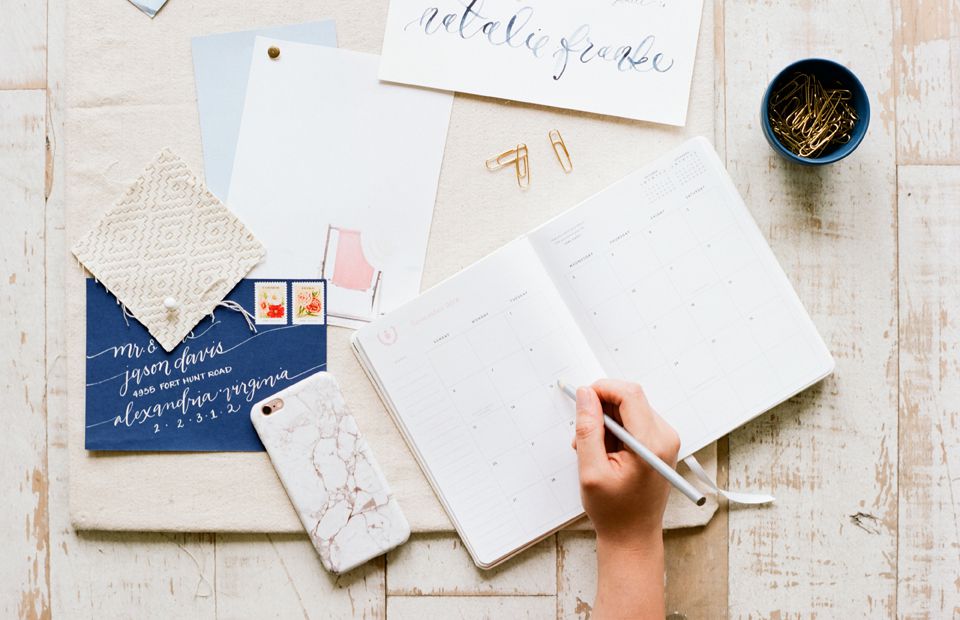
What do you do when you hit a creative block or feel burnt out?
I write, generally over coffee, in a bright + airy space. Monotony and stress are the two key factors that impact my creativity most and I’ve found that journaling in a fresh environment helps to “restart” my brain.
Best piece of advice for someone interested in becoming an entrepreneur?
Failure is an amazing teacher. You will learn more from your mistakes than you will ever learn from your proudest achievements. Don’t fear failure… embrace it. Own your imperfections and never give up.
It can be easy to fall into the trap of thinking that failure means that you will never “make it” as an entrepreneur and that is simply not true. When we look to successful leaders in our field and see what they have accomplished—we don’t see the scars on their knees from falling time and time again. We cannot see the tears they have cried, the late nights spent working while the rest of the world slept. We only see the highlights. Their courage and resiliency played a large role in helping them to get to the place where they today.
Favorite splurge?
Rather than splurging on physical things, I love to splurge on experiences. Travel is the biggest culprit—I’ve been to Iceland, New Zealand, the Virgin Islands, and trekked all the way up the California coast in the last five years.
You May Also Like
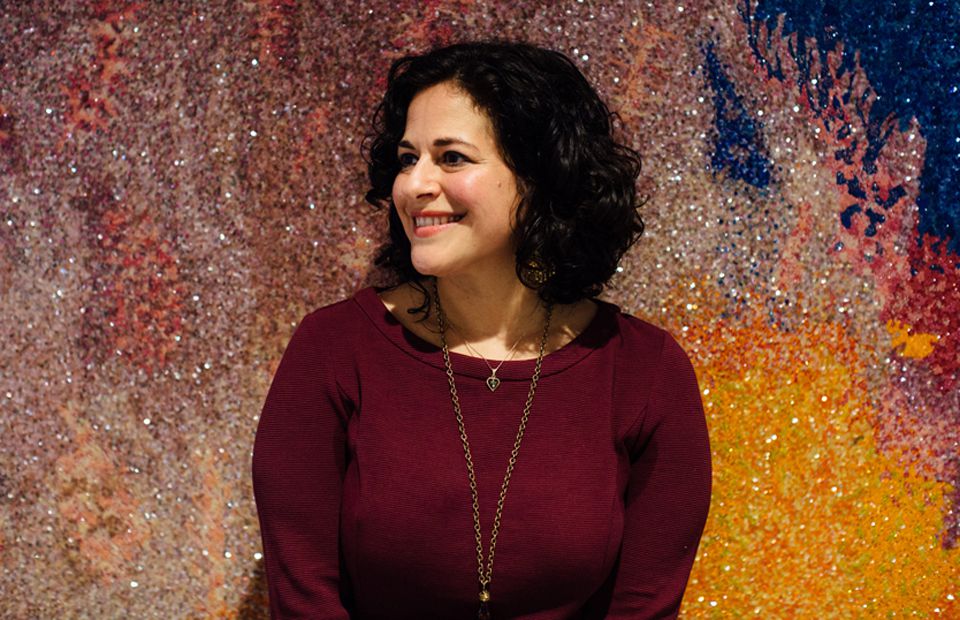
Consumer Goods
Our New Dream Job? Vice President of Social Consciousness & Innovation
"The truth is, having a more responsible supply chain or more responsible business is made up of lots of small actions. And one thing that I really love about my work is that nothing is black and white. It's all gray space."
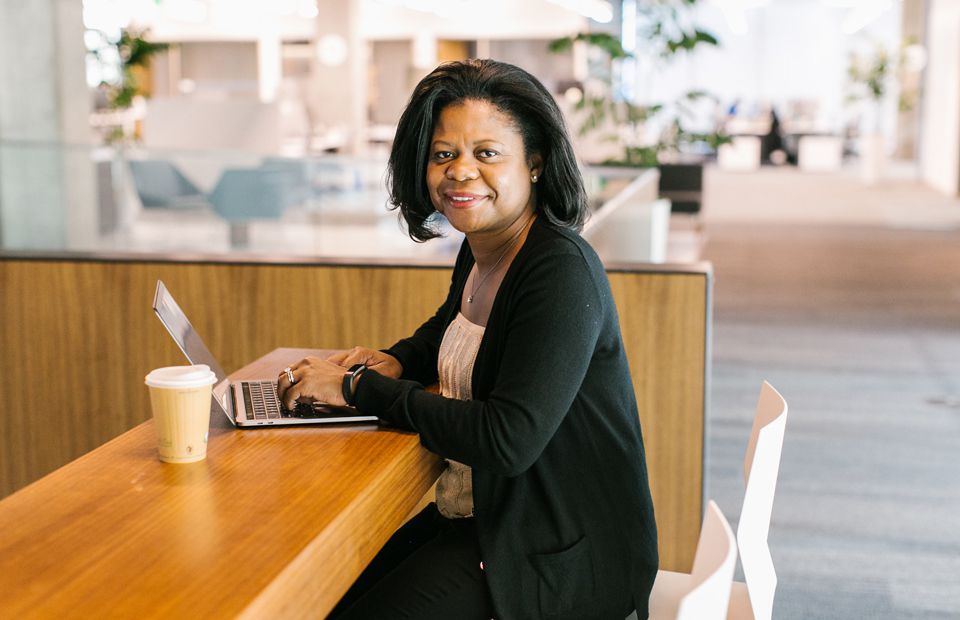
Consumer Services
An Executive at Intuit on How to 'Send the Elevator Back Down'
"What I often tell engineers—especially women engineers—is that it’s good to be excellent, but you’ve got to make sure it’s not a well-guarded secret."
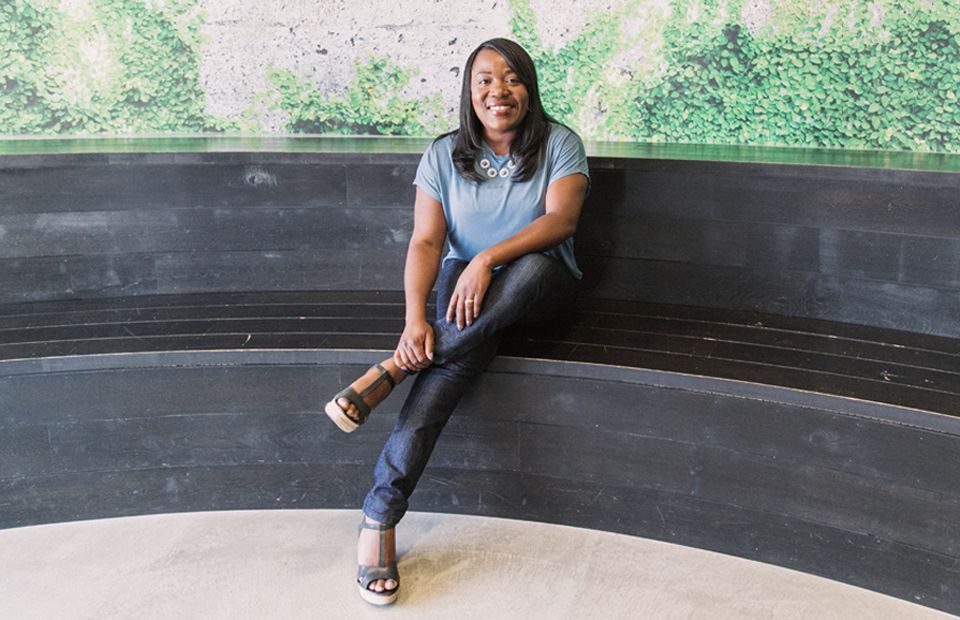
Consumer Services, Technology
A Top Lawyer Talks Leadership, Transparency, and a Music Empire's Goals for Diversity
As Chief Counsel at Pandora, Adelmise Warner has a few thoughts on leaning in.
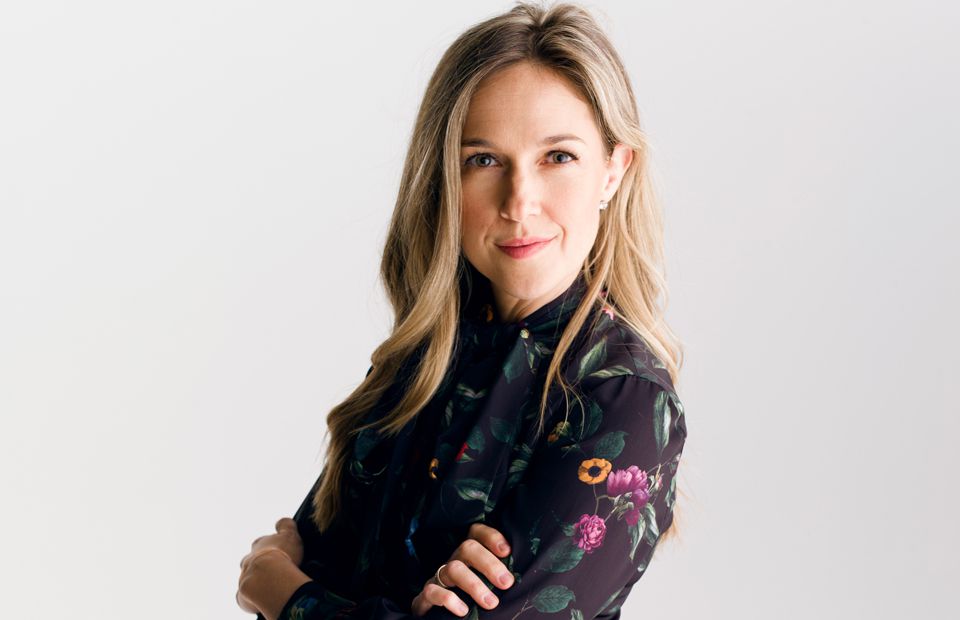
Consumer Services, Technology
Here's How a Female V.P. at a Tech Startup Faces the Gender Gap
Nikki Pechet on writing your own maternity leave policy and taking a job for joy, not money.
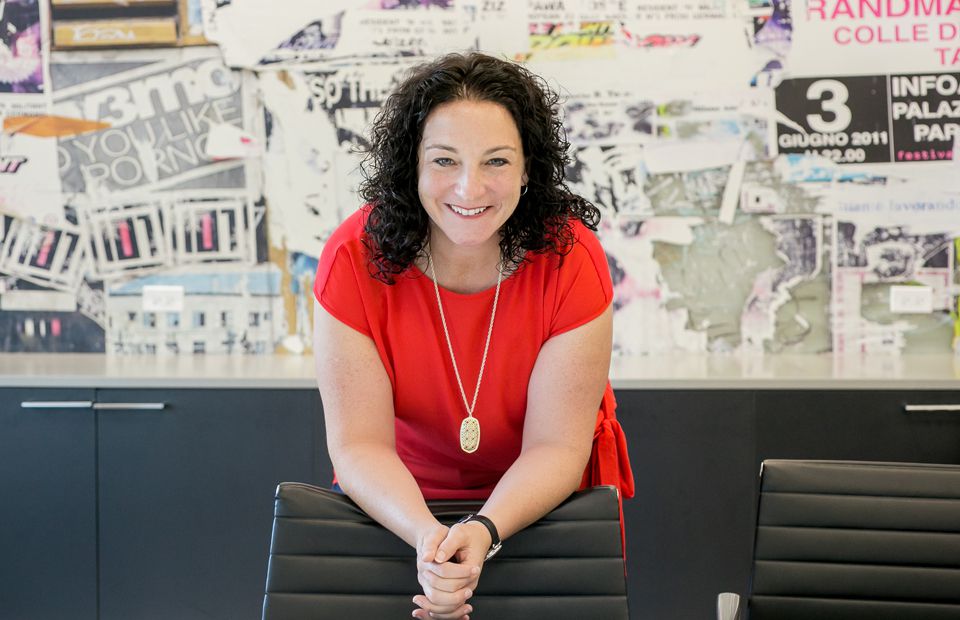
Consumer Goods, Technology
A Sales V.P. on What It's Like to Work at Pandora
Casey Forbes is living an audiophile's dream career.
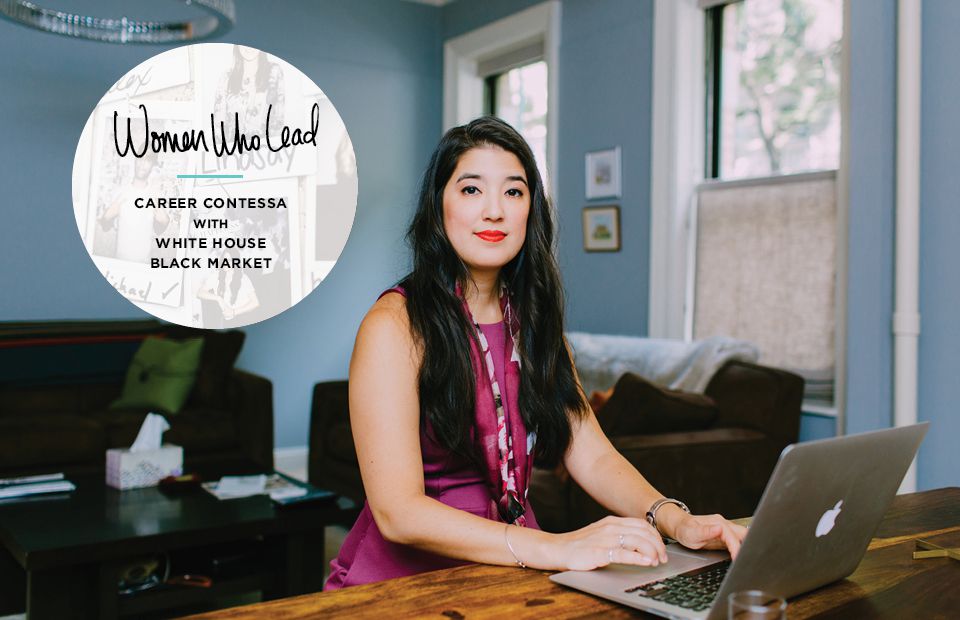
Consumer Services, Education, Finance
Women Who Lead: Alexandra Dickinson, Founder and CEO of Ask For It
On taking risks and asking for more—always.
Get the Best Career Advice Delivered To Your Inbox
Join our newsletter to stay in the loop.
